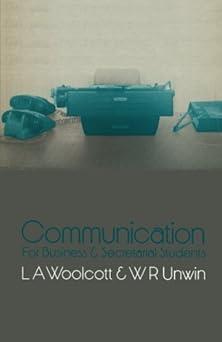Write a summary of the following passage in about 120 words. The great empires centring on Western
Question:
Write a summary of the following passage in about 120 words.
The great empires centring on Western Europe have provided the framework within which the system of worldwide trade has been built. They resulted from the spread of European influence between the sixteenth and nineteenth centuries, during which the European nations found it necessary to bring those parts of the globe with which they had trade relations more and more under their direct control. By the end of the nineteenth century only two extensive areas, the Far East and the Middle East, had not been colonised by Europeans. This was the height of the period of 'imperialism'
when the possession of an empire ceased to be regarded as a burden and became a national status symbol and a source of pride. Late-comers such as Germany and Italy vied with older colonial powers such as Great Britain, France, Belgium and the Netherlands in snatching what territories were still unclaimed. These unwieldy empires, paramount among which was the British, were kept together by the use of the seas for commerce and naval power.
The British prided themselves on an empire on which 'the sun never set', and there was much talk of the civilising mission of the European peoples. By 1914 about 55 per cent of the world's land area came within these empires.
The empires owed much of their strength to the powerlessness of the native populations at the time, and as these became stronger and more politically aware, so they began to demand independence. Generally independence came about by peaceful means, but in some cases the bonds with the former colonising power were only broken after long and bitter conflicts, with the legacies of mistrust and suspicion. The French were particularly reluctant to relinquish control over their colonies, which they regarded in many ways as being part of the motherland. They were forced to do so after long nationalist wars, notably in Indo-China, 1945-54, and Algeria, 1954-62. In the ex-Belgian Congo, which become the Congo Republic in 1960, the situation after independence was so confused that the United Nations was invited to step in to restore order and provide a basis for unity.
Some of the vestiges of empire remained in the form of loose unions such as the British Commonwealth and the French Union, but these do not hinder the exercise of full sovereignty by the member states.
420words 0. G. Parker, The Geography of Economics
Step by Step Answer:

Communication For Business And Secretarial Students
ISBN: 9780333261750
1st Edition
Authors: Lysbeth A Woolcott, Wendy R Unwin






